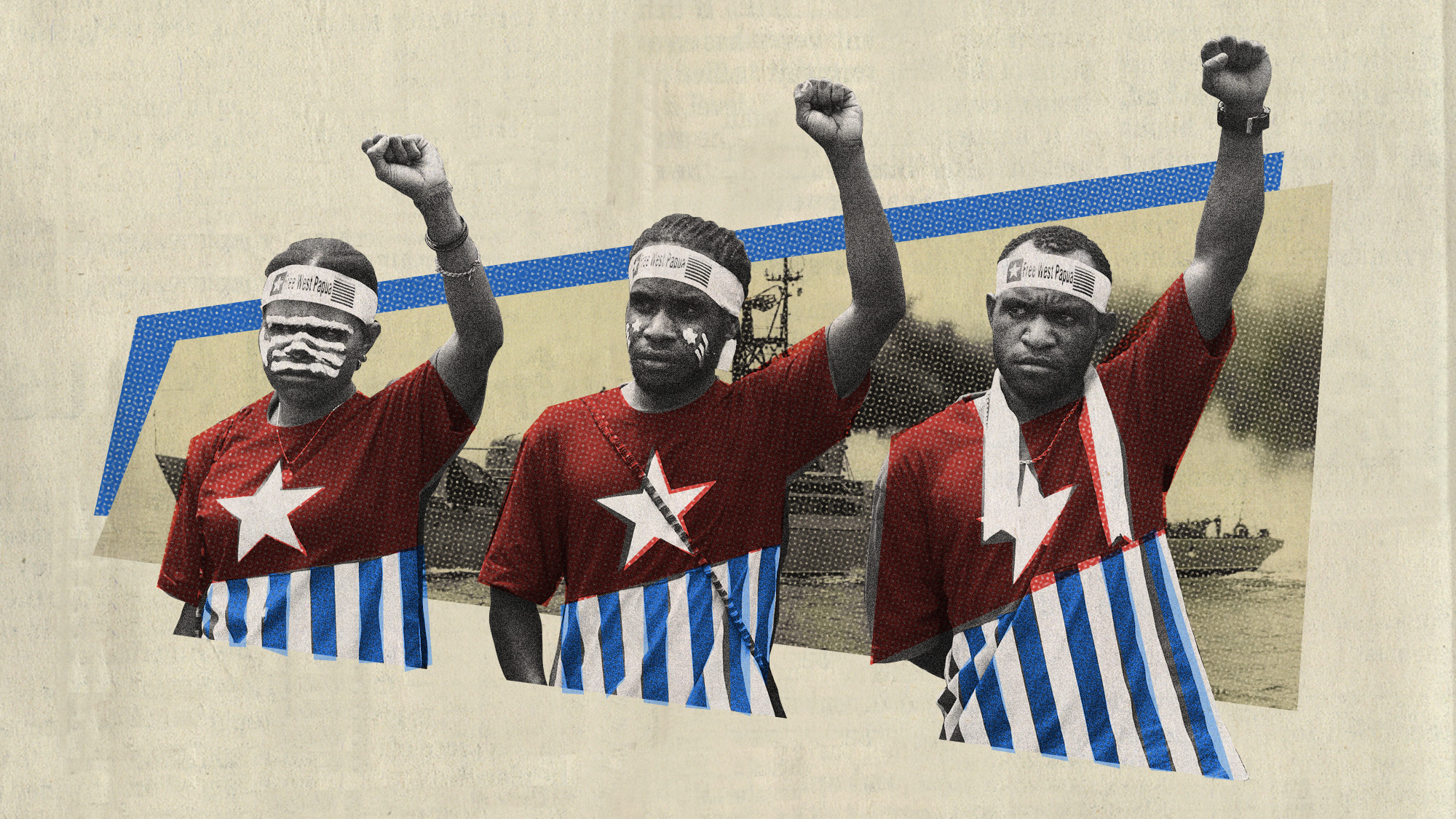How a kidnapped pilot put Free Papua movement in the spotlight
New Zealand pilot Phillip Mehrtens was held for 19 months, drawing international attention to violent insurgency in Indonesia

A free daily email with the biggest news stories of the day – and the best features from TheWeek.com
You are now subscribed
Your newsletter sign-up was successful
A New Zealand pilot held prisoner for more than 19 months by armed insurgents has been freed.
Phillip Mehrtens was taken hostage in 2023 when he landed a small commercial plane in the remote, "restive" region of Papua, a "resource-rich former Dutch colony" that is part of modern-day Indonesia, said CNN. His captors had "hoped to press New Zealand to lobby Indonesia" to meet their "seemingly impossible demand": Papuan independence.
"Today finally I have been freed. I am very happy that shortly I will be able to go home and meet my family," said Mehrtens on Sunday.
The Week
Escape your echo chamber. Get the facts behind the news, plus analysis from multiple perspectives.

Sign up for The Week's Free Newsletters
From our morning news briefing to a weekly Good News Newsletter, get the best of The Week delivered directly to your inbox.
From our morning news briefing to a weekly Good News Newsletter, get the best of The Week delivered directly to your inbox.
His release came after months of "critical" diplomatic efforts by Wellington and Jakarta, said the BBC. But it has also renewed scrutiny of the controversial and often violent insurgency movement known as the Free Papua Movement.
The 'Free Papua' movement
Papua, which borders New Guinea, came under Indonesian control in 1969 after a highly controversial referendum. The vote, overseen by the UN, is widely seen as a sham. Ever since, the Free Papua Movement has sought independence from the Indonesian government, which they accuse of "running a police state" of violent repression in the region, said DW.
In 2022, UN human rights experts demanded humanitarian access to the region because of allegations of "shocking abuses against Indigenous Papuans, including child killings, disappearances, torture and mass displacement of people".
The largely peaceful independence movement is, however, overshadowed by armed insurgents such as the West Papua National Liberation Army (TPNPB), Mehrtens' captors. Indonesia has proscribed the TPNPB as a terrorist group, as they have previously taken hostages to "further their cause".
A free daily email with the biggest news stories of the day – and the best features from TheWeek.com
The battle for independence has grown deadlier as separatist fighters have acquired better weaponry than their traditional bows and arrows. In recent years, they have attacked Indonesian security forces and aircraft that they believe to be carrying supplies to Jakarta.
In August, armed fighters from pro-independence group known as the Free Papua Organisation ambushed a helicopter landing in a remote village. The body of the pilot, 50-year-old Glen Malcolm Conning, was later found by Indonesian police. They maintain that separatist gunmen killed him.
Publicity for the cause
On 7 February 2023, Mehrtens' "life took an unexpected and harrowing turn", said The Guardian.
He was supposed to drop off his five passengers in the "isolated highlands" of West Papua, pick up 15 construction workers and return south. But the plane was "stormed" upon landing, and independence fighters abducted Mehrtens before setting his plane alight. The passengers, who were indigenous Papuans, were released.
Intermittent photos and videos of Mehrtens showing him "surrounded by Papuan fighters brandishing rifles", were released alongside the group's demand for secession from Indonesia. In May 2023, the rebels threatened to kill Mehrtens if their demands for independence talks were not met within two months.
"We will never release the pilot we are holding hostage unless Indonesia recognises and frees Papua from Indonesian colonialism," said Sebby Sambom, a TPNPB spokesperson.
Then, exactly a year after his capture, the TPNPB suddenly announced that they would free Mehrtens to uphold human rights. It had become clear to the TPNPB that "there wasn't going to be any long-term benefit from keeping him", said Damien Kingsbury, professor at Melbourne's Deakin University and a specialist in West Papuan politics.
"The best they could hope for was to be seen as having a humanitarian side and gaining some publicity for their cause."
Harriet Marsden is a senior staff writer and podcast panellist for The Week, covering world news and writing the weekly Global Digest newsletter. Before joining the site in 2023, she was a freelance journalist for seven years, working for The Guardian, The Times and The Independent among others, and regularly appearing on radio shows. In 2021, she was awarded the “journalist-at-large” fellowship by the Local Trust charity, and spent a year travelling independently to some of England’s most deprived areas to write about community activism. She has a master’s in international journalism from City University, and has also worked in Bolivia, Colombia and Spain.